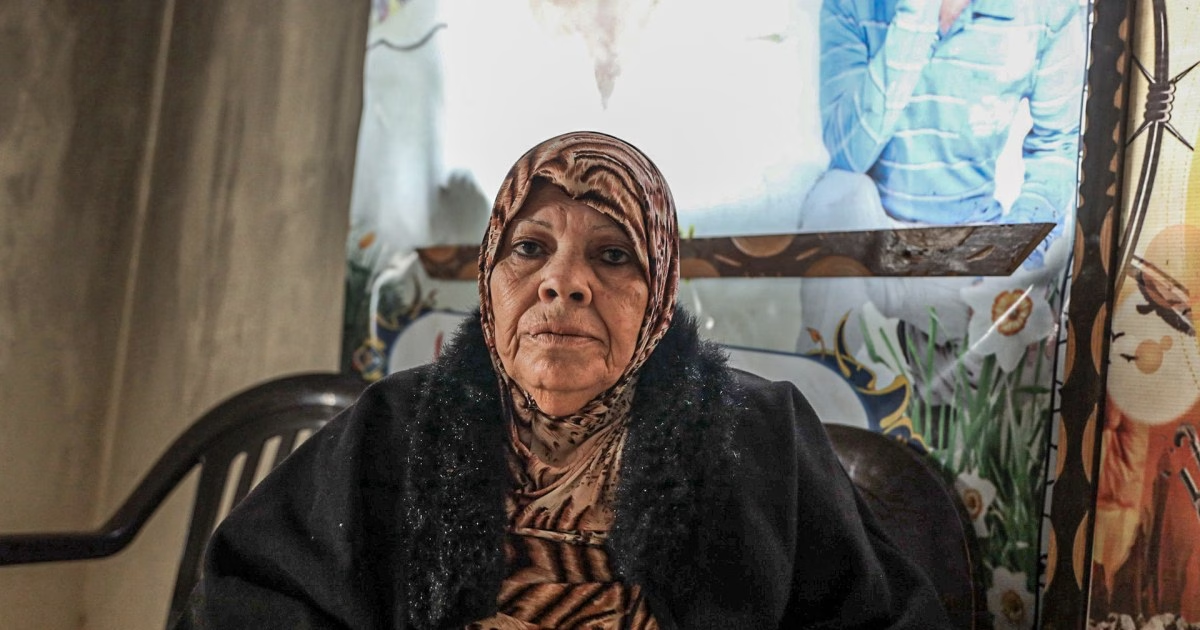Diaal Al-Agha, arrested at 16 for killing an Israeli officer, has been imprisoned for nearly 33 years, making him the longest-held Gazan prisoner in Israeli jails.
Seventy-five-year-old Najat has waited for Diaa since his capture on October 10, 1992. She has tirelessly campaigned, participated in protests, and become a familiar face among families of prisoners.
“Oh, my son, I waited for this moment for 33 years, and it vanished before my eyes,” she sobbed.
a fragile hope crushed
Najat is not alone in her devastation over Israel’s decision not to release the 620 Palestinian prisoners, despite this being part of a ceasefire deal with Hamas.
On Saturday, Hamas returned six Israeli captives taken in October 2023, with the expectation that Israel would release the 620 detainees in return.
However, Israel refused to follow through, citing the handover ceremony for the captives as “provocative” and suspending prisoner releases.
“When they told us there would be no release, I collapsed, screaming: ‘Why? Why?'”
“Then I lost consciousness.”
That morning, Najat, along with her family, attempted to reach Khan Younis for Diaa’s release, navigating through a city heavily affected by the conflict.
The journey, which usually takes 24km (15 miles), took over an hour due to traffic. Upon arrival, Najat found her community gathered at her damaged home, preparing to celebrate Diaa’s release.

Despite initially donning dresses she had prepared for Diaa’s homecoming, which were lost when her house was damaged, Najat’s spirit was momentarily uplifted by the prospect of Diaa’s release.
The news of Diaa’s release had brought her immense joy, a feeling she had not experienced in years. “For 33 years, I feared I would not live to see my son free,” she recounted, tears flowing uncontrollably.
However, she clings to the hope that soon Diaa will be in her arms.
Diaal Al-Agha
Diaal’s name has previously come up in discussions for prisoner exchanges, but Israel has consistently refused, citing his crime.
Part of the Fatah movement since he was 13, Diaa began engaging in armed operations at 16. He now suffers from health issues but has been denied appropriate medical treatment, as per his mother.
Najat has also waited for and visited other family members who were detained over the years, each time hoping for their release.
‘Are we merely pawns?’
During the wait for Diaa’s release, Najat experienced a whirlwind of emotions – fear, anticipation, and hope. She imagined Diaa’s return, but also the fear of what the Israeli prison guards might put him through before his release.
The thought of celebrating the first Ramadan with Diaa in 33 years gave her strength, even as uncertainty clouded their meeting. “I imagined preparing his favourite meals – I wouldn’t let anyone else cook,” she recalled.
The reality of leaving without Diaa was something she couldn’t accept until it happened. “Are we just pawns to them?” she cried. “Thirty-three years of waiting – isn’t that enough?”
“I will see my son free, hopefully very soon,” she says with determination. “I’ve waited 33 years, I’ll wait a little longer.”








